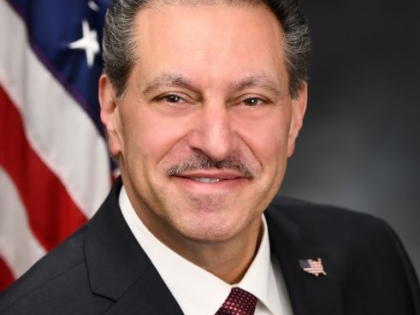
Addabbo Joins Senate Colleagues in Approving Package of Legislation to Protect Children, Sexual Assault Victims and Others From High-Risk Sex Offenders
Joseph P. Addabbo Jr
March 6, 2015
-
ISSUE:
- Local Government
- Law
Queens, NY (March 6, 2015) – State Senator Joseph Addabbo, Jr. recently joined his Senate colleagues to approve a series of bills designed to better protect children, victims of sexual assault and other New Yorkers from potentially dangerous convicted sex offenders.
“Among other efforts, these bills seek to further restrict sex offenders from living in close proximity to their victims, as well as to children – whether in schools, pre-kindergarten programs, or in child care,” said Addabbo. “Parents shouldn’t need to worry that their children will come into contact with high-level sex offenders who happen to live in the same vicinity as programs they are attending, and victims of sex crimes shouldn’t have to relive the trauma of their assaults by finding out their attacker lives right around the corner.”
The package of legislation consists of initiatives that would:
* Prohibit sex offenders who are on parole, on probation or conditionally discharged from being within 1,000 feet of a child day care facility whenever anyone under 18 years of age is on the premises (S.3926);
* Allow the State’s searchable sex offender registry information to provide not only the zip code of sex offender home residences, but also the zip code of their place of employment (S.3811);
* Prevent Level 2 and Level 3 sex offenders – those who have committed the most serious crimes – from living within 1,500 feet of their victims (S.2950);
* Restrict all Level 1, 2 and 3 registered sex offenders from living within 1,000 feet of a school (S.2269);
* Prohibit sex offenders whose victims were children, as well as all of the most serious Level 3 offenders, from knowingly being within 1,000 feet of a facility offering kindergarten or pre-kindergarten classes (S.1520);
* Require school districts, after receiving notice from law enforcement agencies, to notify parents when Level 2 or Level 3 sex offenders are residing in the district (S.22);
*Allow municipalities, in response to a recent State Court of Appeals ruling, to establish their own residency restrictions for registered sex offenders as long as the local laws are not less stringent than state law (S.3925);
*More clearly define “residency” to prevent sex offenders from legally registering at one address while spending most of their time at another location (S.2981); and
* Speed up required court hearings to assess the risk level of convicted sex offenders so that they are not released upon probation, payment of a fine, or upon conditional/unconditional discharge before their risk level is determined (S.712).
“Given the great severity and traumatizing effects of sex offenses – whether they are committed against young children, adults, or senior citizens – we need to take steps to help prevent high-risk offenders from committing additional crimes, and many of the bills in this package seek to limit opportunities for re-offending,” said Addabbo. “While some registered sex offenders will live productive, crime-free lives after their conviction and release back into society, we need to worry about those who won’t and who are most likely to victimize others again.”
Addabbo is also the co-sponsor of legislation (S.851) which would prohibit the placement of Level 2 and 3 sex offenders in any temporary emergency housing or homeless shelters that are used to provide lodging for families with children.
“A recent investigation determined there are registered sex offenders currently living in a number of Queens family shelters, including the Rockaways and South Ozone Park,” he said. “This is a matter of great concern to me. Families who are already in dire straits with nowhere to live on their own should not have to worry that their children are being exposed to potentially dangerous criminals. I hope this bill, too, will soon see action by the State Legislature.”
The legislation package recently approved by the State Senate will now be forwarded to the State Assembly for consideration and possible action.
###
Share this Article or Press Release
Newsroom
Go to NewsroomAddabbo Statement on Good Cause, ELFA No Vote
April 22, 2024
